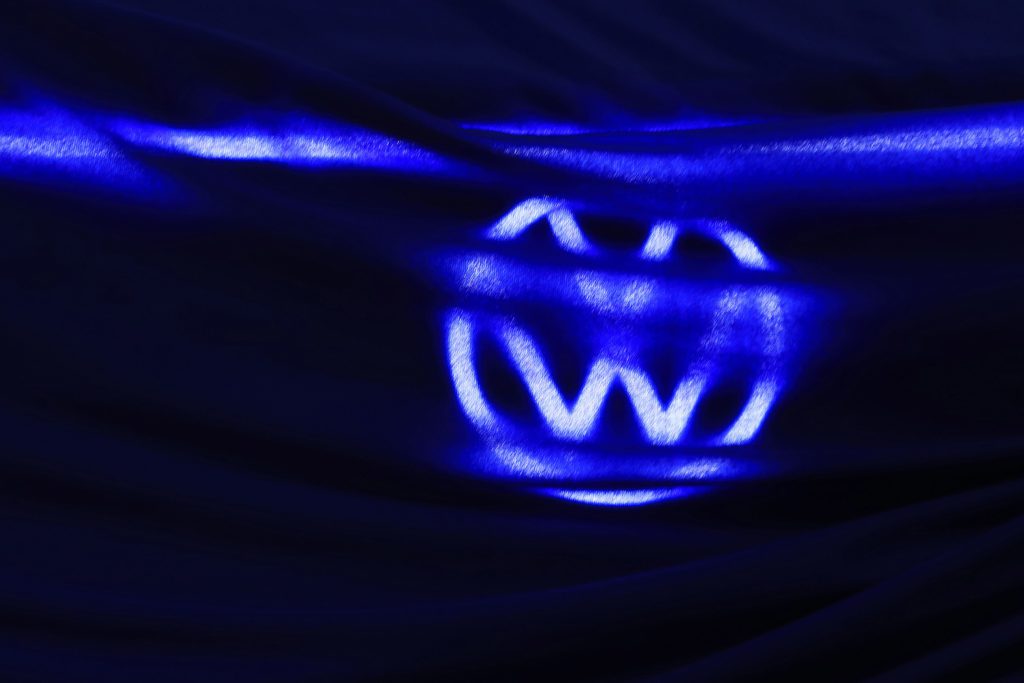(Bloomberg) — Volkswagen AG and other car markers risk potentially costly consumer claims after the bloc’s top court said the use of IT meant to protect car components from damage at certain temperatures could be illegal.
In a dispute stemming from the aftermath of the diesel scandal that roiled the German car giant, the EU Court of Justice on Thursday said there’s no exemption from regulations for the use of software that changes pollutant gas emissions in cars based on the outside temperature.
While VW insists its use of so-called thermal windows is in line with the law, the ruling may open the door to lawsuits for compensation over sales contracts for affected cars.
“Software in diesel vehicles which reduces the effectiveness of the emission control system at normal temperatures during most of the year constitutes a prohibited ‘defeat device,’” the EU court said. “Since such a vehicle default is not minor, rescission of the sale contract in respect of the vehicle is not, in principle, precluded.”
The EU’s top court in 2020 issued a key ruling in a dispute following from the diesel scandal that had engulfed VW, which said the use of defeat devices, which helped the automaker bypass diesel engine pollution tests, can’t be justified under the bloc’s rules. The ruling raised questions for car makers more broadly about the use of other software, because engine functions known as thermal windows — that lower pollution controls when temperatures are low to protect components — are used across the industry.
‘Minor’ Effects
Despite Thursday’s ruling, VW continues to argue that its software remains legal in the way it’s used in its vehicles.
Following the criteria laid out by the EU court, “the thermal windows used in cars by VW remain permissible,” VW said in a statement. “The effects of the ruling on VW are therefore minor” and civil damages claims “will continue to be unsuccessful.”
The company argues that the exhaust gas re-circulation in its EA189 vehicles is active “most of the year,” because it is only switched off if the outside temperature falls below 10 degrees Celsius. However, the court said that the device at issue in Thursday’s case switches off the cleaning mechanism at temperatures below 15 degrees Celsius, making it illegal because it doesn’t work “most of the year.”
“Even if the cars were considered roadworthy because of a retrofit, they do not correspond to what consumers were promised and paid good money for,” said European consumer campaign group BEUC. “Consumer organizations across the EU are still in court against Volkswagen, and this judgment should help consumers to get compensation.”
EU Justice Commissioner Didier Reynders on Thursday also weighed in, tweeting that the judgment is “good news for consumers affected by #Dieselgate” and urging VW to “to end litigation & compensate all consumers.”
A number of consumer claims in Austria by people seeking to cancel their sales contracts led to three courts deciding to ask EU judges for more clarity on whether such software also qualified as a defeat device, or whether there were exceptions for its use.
“This puts a stop to arguments by diesel producers and also the German authorities that these thermal windows serve to protect engines and are legal,” said Peter Kolba, chairman of Austrian consumer association VSV. The group will continue to encourage “risk-free claims for damages against the diesel manufacturers in German courts,” he said.
The Austrian association says it has some 600 lawsuits pending in Germany and has supported Austrian car owners to join a group action of the German consumer organization against Mercedes-Benz Group AG.
The cases are: Cases C‑128/20, C‑134/20 and C‑145/20, GSMB Invest GmbH & Co. KG v. Auto Krainer Gesellschaft mbH, IR v. Volkswagen AG, DS v. Porsche Inter Auto GmbH & Co. KG, Volkswagen AG.
More stories like this are available on bloomberg.com
©2022 Bloomberg L.P.











